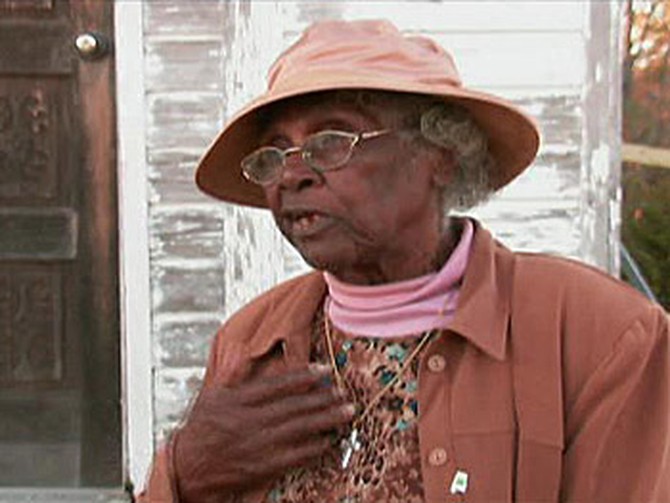Martin Luther King's Legacy
As Dr. King's message of freedom and equality spread throughout the country, citizens in a small Alabama town wondered if his vision would ever reach them.
For nearly 200 years, the Alabama River has separated the black citizens of Gee's Bend—a small peninsula surrounded by water on three sides—from their white neighbors in Camden. With no grocery stores, hospitals or job opportunities in Gee's Bend, residents travel by ferry to Camden for almost all their basic necessities.
In the 1960s, water was just one of many things that divided these two communities. Gee's Bend citizens joined the civil rights movement and began protesting segregation in Camden.
When they crossed the river, they were met with intimidation and intolerance. "When you leave home that morning to go march, you didn't know if you were going to make it back home or not," says Nettie, a 90-year-old Gee's Bend resident.
Hollis Curl, a former Camden judge, says no matter how hard the racists tried, they couldn't stop the growing tide of change. "Marching and demonstrating in the street and holding voting rallies…some of the movers and shakers in the county at that time wanted that stopped," he says. After one such demonstration, Judge Curl says he put 410 protestors behind bars.
Nettie says she was imprisoned for almost a week. "I went because we were marching, and they told us don't," she says. "But we did it anyway because we wanted our rights."
When Camden leaders realized they couldn't stop the protests, they stopped the ferry instead.
For nearly 200 years, the Alabama River has separated the black citizens of Gee's Bend—a small peninsula surrounded by water on three sides—from their white neighbors in Camden. With no grocery stores, hospitals or job opportunities in Gee's Bend, residents travel by ferry to Camden for almost all their basic necessities.
In the 1960s, water was just one of many things that divided these two communities. Gee's Bend citizens joined the civil rights movement and began protesting segregation in Camden.
When they crossed the river, they were met with intimidation and intolerance. "When you leave home that morning to go march, you didn't know if you were going to make it back home or not," says Nettie, a 90-year-old Gee's Bend resident.
Hollis Curl, a former Camden judge, says no matter how hard the racists tried, they couldn't stop the growing tide of change. "Marching and demonstrating in the street and holding voting rallies…some of the movers and shakers in the county at that time wanted that stopped," he says. After one such demonstration, Judge Curl says he put 410 protestors behind bars.
Nettie says she was imprisoned for almost a week. "I went because we were marching, and they told us don't," she says. "But we did it anyway because we wanted our rights."
When Camden leaders realized they couldn't stop the protests, they stopped the ferry instead.
Published 03/14/2008


